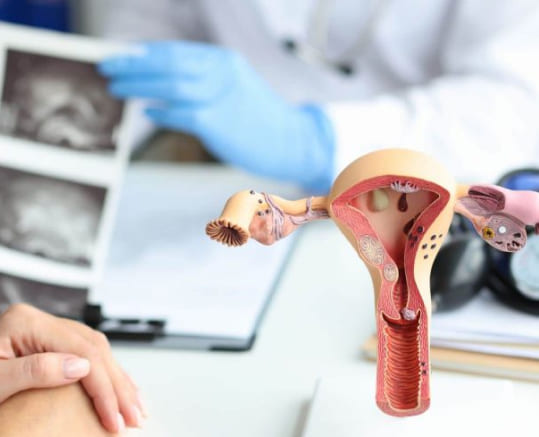Specialties

Clinical and oncological urology:
It is a medical-surgical specialty that deals with the diagnosis and treatment of morphological kidney diseases, urinary system, and retroperitoneal diseases affecting both sexes and diseases of the male genital system, without age limit.
The sub-specialty of oncological urology focuses on the prevention, diagnosis, and mainly surgical treatment of tumors (cancer) of the urinary system of both sexes (kidneys, glands, ureters, bladder, urethra), tumors (cancer) of the male genital system (Prostate, testicles, penis), tumors of the adrenal or suprarenal glands and some tumors of the retro-peritoneum.

Medical oncology:
This branch of medicine specializes in the diagnosis and treatment of cancer. An oncologist is a doctor who treats cancer and provides medical care for a person diagnosed with cancer.
The field of oncology has three main areas: clinical, surgery and radiation.
A clinical oncologist treats cancer with chemotherapy or other medications, such as targeted therapy or immunotherapy.
A surgical oncologist removes the tumor and nearby tissue during surgery. Additionally, she performs certain types of biopsies to help diagnose cancer.
A radiation oncologist treats cancer using radiation therapy.
Other types of oncologists include the following:
A gynecologic oncologist treats gynecologic cancers, such as uterine, ovarian, and cervical cancers.
A pediatric oncologist treats cancer in children. Some types of cancer occur more frequently in children and adolescents. These include certain brain tumors, leukemia, osteosarcoma, and Ewing sarcoma. The most common types of cancer in children sometimes occur in adults. In these situations, an adult may choose to be treated by a pediatric oncologist.
A hematologic oncologist diagnoses and treats blood cancers, such as leukemia, lymphoma, and myeloma.

Pain Medicine and Palliative Care
Anesthesiology is the medical specialty dedicated to the special and intensive care and attention of patients during surgical interventions or other processes that may be uncomfortable or painful. Likewise, he is responsible for the treatment of acute or chronic pain of extra-surgical causes.
Pain Medicine is the discipline dedicated to the study, research and treatment of pain in all its forms. It aims to prevent the physical and psychological suffering of the patient and their environment. Pain treatment must be multidisciplinary; the pain therapist anesthesiologist gives a more global vision. Non-surgical patient management is increasingly important. For example, 80% of people will develop low back pain throughout their lives. Older patients will suffer from peripheral and spinal osteoarthritis, which is very painful. And cancer patients deserve a good quality of life and improvement in their pain, neuropathic pain, etc. All of this is currently addressable and improvable.

Hematology
Hematology is the science that studies blood and hematopoietic organs in their normal and pathological characteristics. It covers the morphological, functional and pathophysiological aspects, which allow the diagnostic identification, treatment and prevention of diseases, applying complementary techniques for the recognition of the formed elements of the blood, bone marrow and lymphatic organs, which are an integral part of the semiology of the patient
Among the numerous diseases that hematology deals with, the following stand out:
● Oncological diseases.
● Leukemia.
● Lymphomas.
● Myelomas.
● Thrombosis.
● Bleeding diseases, such as hemophilia.
● Myelodysplastic syndrome.
● Anemia.
● Neutropenia.
● Thrombocytopenia

Gynecology and Obstetrics
Gynecology and obstetrics is a medical specialty that specializes in caring for women throughout their lives, including pregnancy and childbirth, and diagnosing and treating diseases of the female reproductive organs.

Oncological Gynecology
Gynecologic oncologists provide an integrated approach to the diagnosis and surgical management of cancerous and noncancerous (benign) conditions of the female reproductive system. These include cervical cancer, endometriosis, fibroids, ovarian cancer, pelvic tumors, uterine cancer, vaginal cancer and vulvar cancer.

Cardiology:
Cardiology is a medical specialty that focuses on diagnosing and treating diseases of the heart and circulatory system. Cardiologists are doctors who specialize in studying and managing conditions such as heart disease, hypertension, heart failure, coronary artery disease, and many other conditions related to the heart and blood vessels. They perform diagnostic tests, such as electrocardiograms, echocardiograms, and cardiac catheterizations, and may prescribe treatments, such as medications or invasive procedures, to address heart problems.

Internal Medicine
Internal medicine is a medical specialty that focuses on the diagnosis, treatment and comprehensive care of various diseases in adults. Internal medicine doctors, known as internists, are experts in managing complex medical conditions and often serve as primary care doctors for adults.
Internists care for a wide range of medical problems, which can include diseases of the cardiovascular, pulmonary, gastrointestinal, renal, endocrine, and many other body systems. They treat conditions such as diabetes, hypertension, infectious diseases, autoimmune diseases, gastrointestinal disorders, and more. Additionally, they coordinate care for patients with multiple health problems and often work collaboratively with other specialists to ensure comprehensive care. Internal medicine is essential for the diagnosis and management of diseases in adults.

Interventional Radiology
Interventional Radiology is a subspecialty in which imaging techniques are used to perform minimally invasive procedures. Some of these procedures are only for diagnostic purposes, while others are performed as part of specific treatments.
Interventional radiology is used to treat blockages within arteries and veins, block blood vessels that feed tumors, destroy malignant tumors using concentrated heat and freezing, drain blocked organ systems such as the liver, gallbladder and kidney, and perform biopsies that would otherwise require surgery for exploration. Interventional radiologists often work with oncologists, performing innovative procedures to treat many cancer patients and improve their quality of life.
We accept the following insurers
We offer convenience and peace of mind by accepting various health insurance to cover your care needs.



OUR SERVICES
More than 10 years of experience in
therapies and outpatient services
Proudly the first of its kind in the region. Our main focus has been characterized on intravenous therapy derived from different medical specialties. Schedule an appointment with us and look towards a healthier future!

Ambulatory Infusion Center
Safe and convenient treatments using intravenous infusions to improve health without hospitalization.

Parenteral Mixture Center
Precise preparation of medications according to medical prescriptions, including intravenous administration and comprehensive monitoring.

External Medical Consultation
Comprehensive care for diagnosis, monitoring and medical controls, including prenatal monitoring according to the required specialty.

Outpatient Procedures
Brief medical tests or interventions, without the need for an overnight stay, offering greater comfort to patients.
